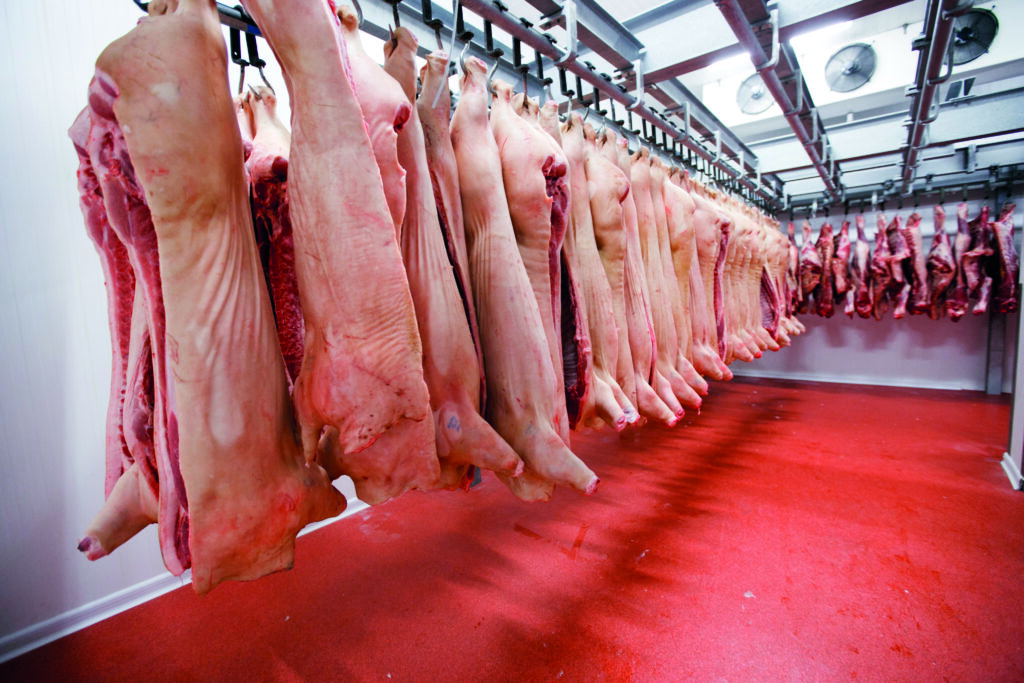Pig producers and processors have been reminded that new legislation governing pig contracts comes into force a week from today.
The Fair Dealing Obligations (Pigs) Regulations 2025 (FDOP2025) apply from August 13. In a blog on the Defra website, Richard Thompson, who was appointed last June as the Agricultural Supply Chain Adjudicator (ASCA) to enforce the Fair Dealings Powers across various sectors, said FDOP2025 will give pig farmers and producers greater certainty over the terms of their contracts.
The new rules, which were developed following extensive consultation with pig farmers, producer groups and wider industry and largely mirror the rules already in place in the milk sector, aim to ensure that contracts between farmers and processors are fair and transparent.
Mr Thompson said the regulations will:
- Improve how contracts work
- Protect producers from unfair practices
- Give them more control over how they sell their pigs.
What the new regulations mean
FDOP2025 applies to pig purchase contracts between ‘purchasers’ (such as pig processors and abattoirs) and ‘qualifying sellers’ (including pig farmers and those who buy pigs without processing them), although some exemptions may apply.
These new rules make sure both parties know their rights and responsibilities under the pig purchase contract.
In summary, from August 13, 2025, new contracts must be in writing, signed, and include clear terms about pricing, how long the contract lasts, how it can be ended, and how disputes will be settled.
“If you’re a pig processor or other purchaser, any new pig purchase contracts you make after August 13, 2025, must comply with the rules,” Mr Thompson said.
As with the dairy sector, there is a 12-month transition period to allow the sector to meet the requirements of the regulations, but by August 2026, all contracts — new and existing — must meet these standards.
ASCA’s role
Mr Thompson explained that a primary part of his role is to ensure purchasers understand and comply with FDOP2025and that farmers and producers know how to raise a complaint with my office.
“We’ve published full guidance on the regulations, my enforcement role, and how to make a complaint and we would recommend that alongside this guidance, businesses should always seek their own independent legal advice concerning compliance with FDOP2025 and possible contractual disputes,” he said.
In short, a pig farmer or producer will be able to make a complaint if:
- They don’t have a written pig purchase contract and haven’t opted out of the Regulations
- Their contract is missing something the regulations require
- Their contract includes something that goes against the regulations
- They have failed to receive clarification on the variable pricing used in their contract despite requesting it.
“It is worth noting that before making a complaint, the producer must have followed their contract’s dispute resolution procedure before making a complaint,” Mr Thompson said.
“If I find there has been a breach, I can impose a fine of up to 1% of the purchaser’s turnover and/or make them compensate the producer.
“I know that building trust, confidence and understanding takes time – so I will explore different ways to make myself accessible and available to help. I also recognise from my current engagement with the dairy sector that the prospect of raising a formal complaint can be a daunting one.
“That is why we have also created a new mailbox through which anyone can raise a concern with ASCA in confidence. While I may not be able to pursue a formal investigation without a formal complaint, hearing about the issues faced by producers is critical to enable me to help shape how my office will work with the sector in the future.”
To raise a concern confidentially, email: asca-in-confidence@defra.gov.uk
Working with the sector
Mr Thompson, who attended the Pigs Tomorrow conference in May, said he was keen to engage with stakeholders across all aspects of the supply chain, to better understand perspectives on what is or isn’t working well.
“We’ll be reaching out to set up introductory meetings with stakeholders and also attending key agricultural shows and events to ensure we can hear from as many different parts of the industry as we can,” he said.
If you would like to meet with ASCA or contact it about any supply chain issue, email: asca@defra.gov.uk
Fair, clear and built on trust
Food security minister Daniel Zeichner said: “Our pig farmers work incredibly hard to supply high-quality British food – at home and around the world.
“These reforms will make sure farmers work in a supply chain that’s fair, clear, and built on trust. They’ll be able to plan for the future with confidence, knowing they’re protected from sudden contract changes and have clear ways to sort out any disputes.”
“This is a practical, proportionate step forward, backed by industry and part of our Plan for Change to support food security and rural growth.”




